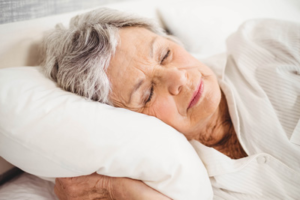How to stay healthy and fit as you get older
Healthy ageing is impacted by many variables. Some factors, such as genetics, are outside of our control. Others, like physical exercise, a healthy diet, regular doctor visits, and mental health care, are within our reach.

1. Start exercising
An immune system booster is an exercise. Your body’s ability to combat infection and inflammation increases with exercise. You don’t have to engage in a difficult activity. Exercises with less impact are also effective.
- Consider low-impact aerobics, riding, walking, or swimming. If you can, work out at a moderate level for 20 to 30 minutes each day to meet the weekly recommendation of 150 minutes.
- Strengthen your muscles further by engaging in yoga or weightlifting. Find the exercise programme that feels the greatest for you and modify it.
- Lastly, elders can benefit from swimming as a kind of exercise. It increases heart rate while being kind to an arthritic body. Depression can be prevented by swimming, especially if the pool is outside and the sun is shining.
HEALTHY SNACKS TO BOOST YOUR ENERGY
2. Take care of your skin
The largest organ in your body is your skin. Dependable source It may better shield your body from the environment, control your body temperature, and offer feeling if you take good care of it. To maintain its best appearance and functionality:
- When outside, put on protective gear and sunscreen.
- Get screened for skin cancer every year.
- When caring for your skin to prevent ageing, use gentle products.
- Remain hydrated.
3. Having a restful night’s sleep

By obtaining enough sleep, you can keep your body healthy and your mind sharp. Even though they need the same seven to nine hours of sleep as regular adults, older individuals typically don’t get enough of it. If you’re sick or in pain, it could be difficult to fall asleep, and some medicines might keep you awake. Lack of quality sleep can make a person irritable, unhappy, forgetful, and more prone to accidents like falls. a bedridden senior citizen. The quality of sleep affects mood and memory.
4. Boost your vitamin intake

- Many people are vitamin D deficient but are unaware of it. In fact, it’s believed to have an impact on half of the adult population. Cardiovascular illness, bone issues, and cognitive decline have all been related to vitamin D insufficiency.
- Spend at least 15 to 20 minutes each day outside in the sun to increase your vitamin D levels. Additionally, it is present in foods like oily fish and eggs. Talk to your doctor about vitamin D pills as an alternative.
- Avoid using solid fats when cooking; instead, use oils.
- To lower your blood pressure, try to limit your salt intake.
5. Avoid coming into contact with sick people
Another way to keep yourself safe all year long is to avoid being around sick people. Saying it is easier than doing it. But until things get better, limit your contact with sick people and avoid busy areas if there is a flu outbreak in your area. Wear a mask to protect your face if you must go outside. Wear gloves and a face mask while caring for someone who has the flu, and wash your hands frequently.
HOME REMEDIES FOR HEALTHY AND CLEAR SKIN
6. Mental health is important
If you’re happy with life and don’t put too much strain on yourself, you’ll live longer and age better.
- Recognize your age. There is proof that those who keep a positive outlook on ageing live longer and may recover from a disability more effectively. Understanding that ageing is a part of life can make all the difference.
- Exercise your interests. Making the time to do things you like can only increase your happiness. Whatever it is that makes you happy, do it. Spend time in nature. Take up a new pastime.
Conclusion
To maintain a positive attitude Spend time with loved ones and friends. Strong social networks and meaningful relationships increase longevity and mental and physical well-being. Don’t forget your animal companions, since studies have shown that owning a pet can reduce stress and blood pressure, as well as loneliness and improve mood.